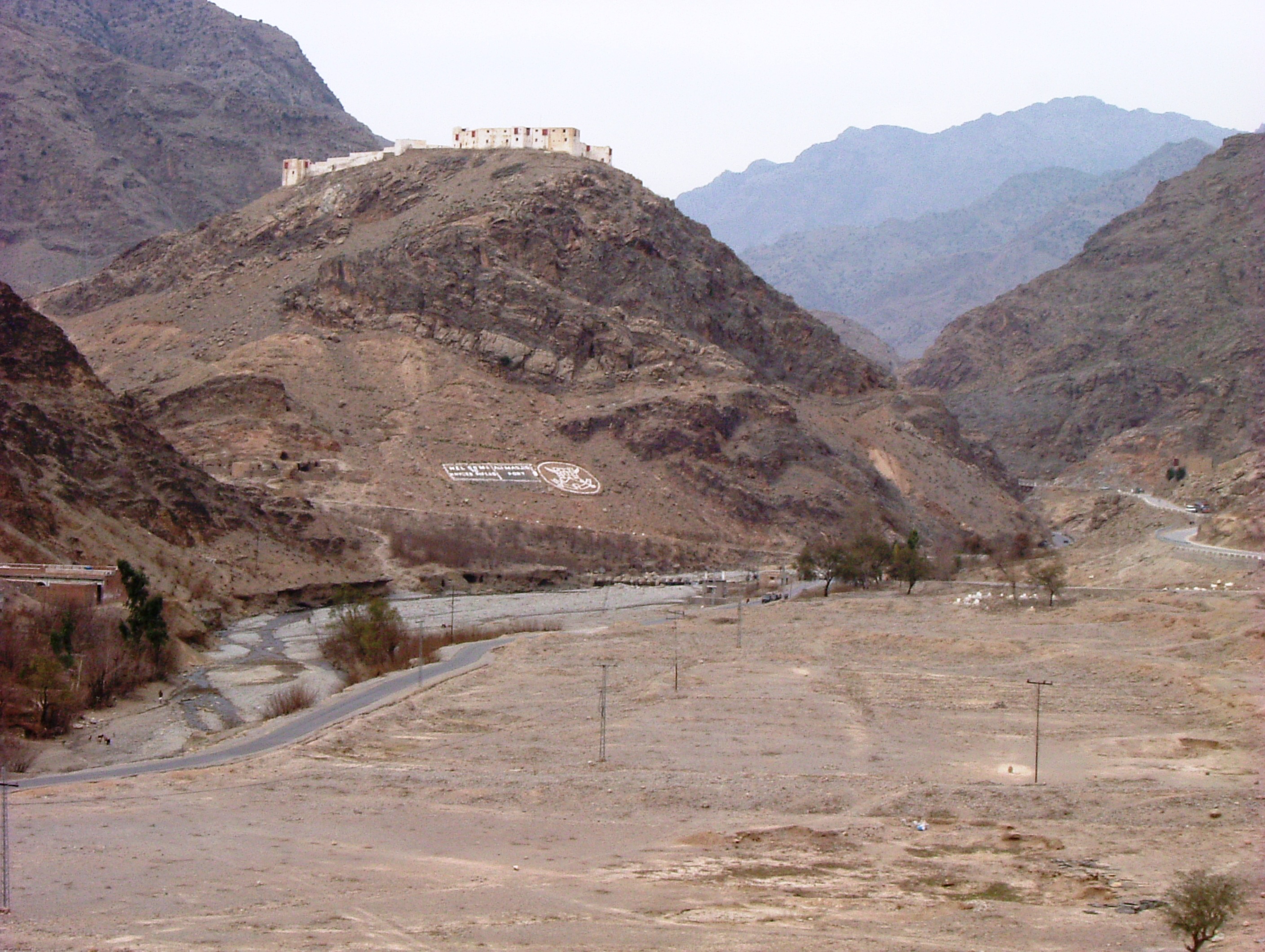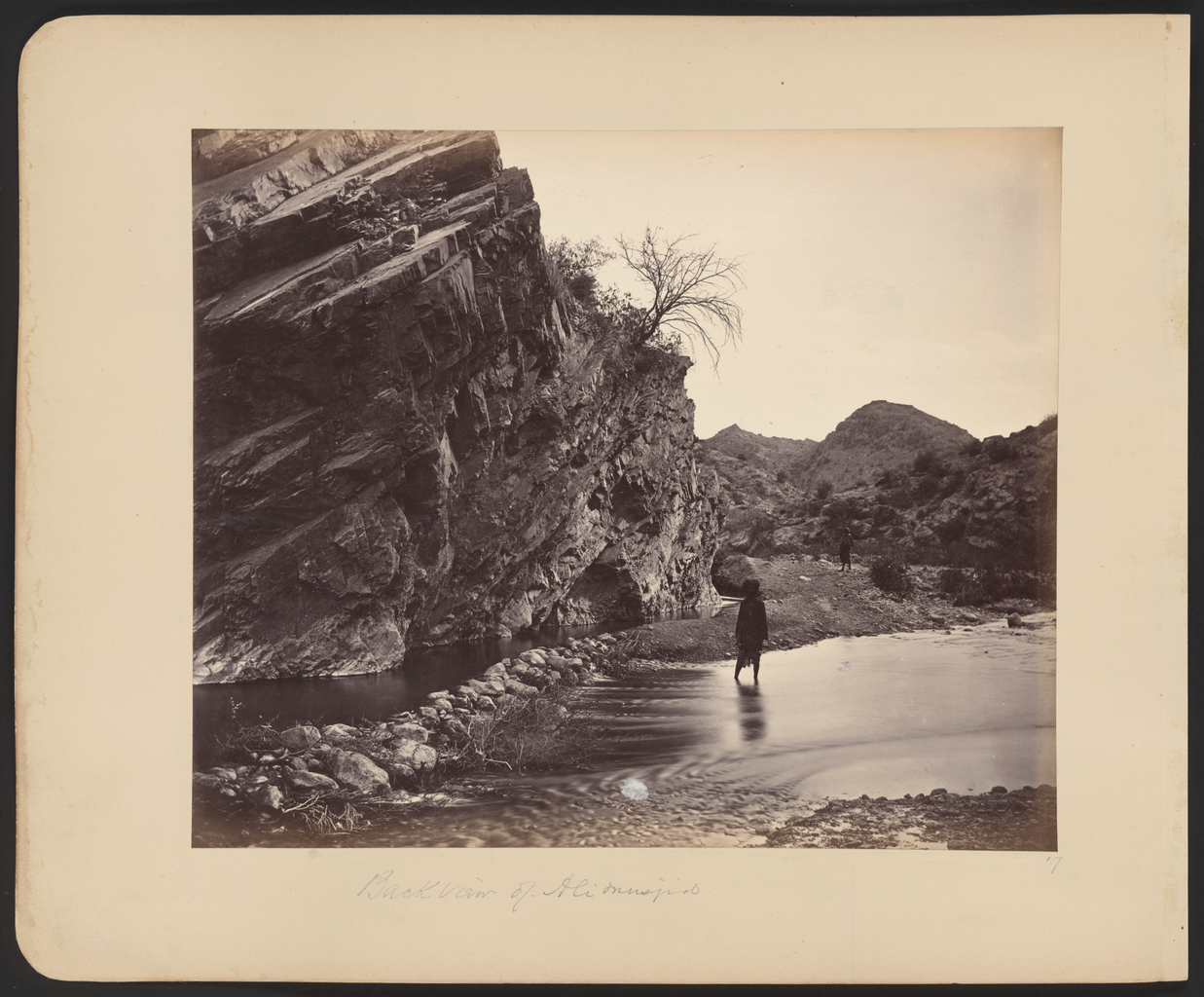Ali Masjid on:
[Wikipedia]
[Google]
[Amazon]

 Ali Masjid (
Ali Masjid (

 Ali Masjid is located at the narrowest point in the
Ali Masjid is located at the narrowest point in the

 Ali Masjid (
Ali Masjid (Pashto
Pashto ( , ; , ) is an eastern Iranian language in the Indo-European language family, natively spoken in northwestern Pakistan and southern and eastern Afghanistan. It has official status in Afghanistan and the Pakistani province of Khyb ...
and ) is the narrowest point of the Khyber Pass
The Khyber Pass (Urdu: درۂ خیبر; ) is a mountain pass in the Khyber Pakhtunkhwa province of Pakistan, on the border with the Nangarhar Province of Afghanistan. It connects the town of Landi Kotal to the Valley of Peshawar at Jamrud by tr ...
. It is located in Khyber District
Khyber District (, ) is a district in the Peshawar Division of the Khyber Pakhtunkhwa province of Pakistan. Until 2018, it was an agency of the erstwhile Federally Administered Tribal Areas. With the merger of FATA with Khyber Pakhtunkhwa in ...
of Khyber Pakhtunkhwa
Khyber Pakhtunkhwa (; ; , ; abbr. KP or KPK), formerly known as the North West Frontier Province (NWFP), is a Administrative units of Pakistan, province of Pakistan. Located in the Northern Pakistan, northwestern region of the country, Khyber ...
, Pakistan. It is around east of the city of Landi Kotal
Lanḍī Kōtal (, ) or Lwargai ( ''Lwāṛgai'') is a town in the Province of Khyber Pakhtunkhwa in Pakistan, and the administrative capital of Khyber District. It was one of the largest towns in the former Federally Administered Tribal Areas, an ...
(West of Peshawar) and has an elevation of . The width of the Khyber near Ali Masjid was earlier too narrow for two fully laden camels to pass each other, but since has been widened.
Name origin
It was named in memory ofAli
Ali ibn Abi Talib (; ) was the fourth Rashidun caliph who ruled from until his assassination in 661, as well as the first Shia Imam. He was the cousin and son-in-law of the Islamic prophet Muhammad. Born to Abu Talib ibn Abd al-Muttalib an ...
, the cousin of the Islamic prophet Muhammad
Muhammad (8 June 632 CE) was an Arab religious and political leader and the founder of Islam. Muhammad in Islam, According to Islam, he was a prophet who was divinely inspired to preach and confirm the tawhid, monotheistic teachings of A ...
. A mosque and a shrine has been built here in the memory of Ali, who visited this place according to a local tradition. There is also a huge boulder which carries the marks of a hand believed to be that of Ali.
History

 Ali Masjid is located at the narrowest point in the
Ali Masjid is located at the narrowest point in the Khyber Pass
The Khyber Pass (Urdu: درۂ خیبر; ) is a mountain pass in the Khyber Pakhtunkhwa province of Pakistan, on the border with the Nangarhar Province of Afghanistan. It connects the town of Landi Kotal to the Valley of Peshawar at Jamrud by tr ...
. It contains a shrine to ʻAlī ibn Abī Ṭālib (circa 600–661) the cousin and son-in-law of Muhammad
Muhammad (8 June 632 CE) was an Arab religious and political leader and the founder of Islam. Muhammad in Islam, According to Islam, he was a prophet who was divinely inspired to preach and confirm the tawhid, monotheistic teachings of A ...
.Caption of Ali Masjid from Bewlow WDL11473, Library of Congress Travellers would stop to pray at the shrine while on the trading route between Kadam and Ali Masjid.
The area was originally within Afghanistan
Afghanistan, officially the Islamic Emirate of Afghanistan, is a landlocked country located at the crossroads of Central Asia and South Asia. It is bordered by Pakistan to the Durand Line, east and south, Iran to the Afghanistan–Iran borde ...
, with a fortress
A fortification (also called a fort, fortress, fastness, or stronghold) is a military construction designed for the defense of territories in warfare, and is used to establish rule in a region during peacetime. The term is derived from L ...
built on the height above Ali Masjid in 1837 by the Afghan amir, Dōst Mohammad Khān (1793–1863). The shrine and fort are located in extremely rugged terrain overlooking a deep gorge.
First battle of Ali Masjid
Ali Masjid was the scene of battles during theAnglo-Afghan wars
Anglo-Afghan Wars may refer to:
* Expedition of Shah Shujah Durrani (1833–1834)
* First Anglo-Afghan War (1838–1842)
* Second Anglo-Afghan War (1878–1880)
* Hazara Expedition (1888)
* Chitral Expedition (1895)
* Tochi Expedition (1897� ...
. In 1842 during the First Anglo-Afghan War
The First Anglo-Afghan War () was fought between the British Empire and the Emirate of Kabul from 1838 to 1842. The British initially successfully invaded the country taking sides in a succession dispute between emir Dost Mohammad Khan ( Bara ...
, the fort was garrisoned by the British. During the disastrous retreat from Kabul, a relief force under Colonel Charles Wild was attacked by Afghan troops of Akbar Khan at the entrance of the Khyber Pass and forced to fall back. The British garrison was forced to evacuate the fort and withdraw to Jamrud
Jamrūd (Pashto/) or Jam () is a town in the Khyber District of Khyber Pakhtunkhwa, Pakistan. Located in the Valley of Peshawar, on the western fringe of Peshawar city, Jamrud is the doorway to the Khyber Pass which is just to the west of the to ...
.
Second battle of Ali Masjid
In November 1878, during theSecond Anglo-Afghan War
The Second Anglo-Afghan War (Dari: جنگ دوم افغان و انگلیس, ) was a military conflict fought between the British Raj and the Emirate of Afghanistan from 1878 to 1880, when the latter was ruled by Sher Ali Khan of the Barakzai dy ...
, the Peshawar Valley Field Force under General Sir Samuel Browne captured the fort from the Afghans under Faiz Muhammad.
In May 1879, the Khyber Pass was ceded to British control by the Treaty of Gandamak
The Treaty of Gandamak (Dari: معاهده گندمک, Pashto: د گندمک تړون) officially ended the first phase of the Second Anglo-Afghan War. The Afghan emir Mohammad Yaqub Khan ceded various frontier areas as well as Afghanistan's con ...
, after which the fort was within the British Raj
The British Raj ( ; from Hindustani language, Hindustani , 'reign', 'rule' or 'government') was the colonial rule of the British The Crown, Crown on the Indian subcontinent,
*
* lasting from 1858 to 1947.
*
* It is also called Crown rule ...
. Treaty of Gandamak, 26 May 1879: text The British then established their own fort on the site, commanding a strategic view over the Khyber Pass. The fort has a small cemetery which contains the graves of British soldiers who fell in the second Afghan War. The valley walls bear insignias of regiments that have served here. The Ali Masjid Mosque is also mentioned in the book Tuzk-i Babur, written by the first king of the Mughal Empire when he captured Kabul in 1505. After that, he travelled to India through the Khyber Pass and stayed at the masjid, later travelling to Peshawar.
References
See also
Battle of Ali Masjid
The Battle of Ali Masjid, which took place on 21 November 1878, was the opening battle in the Second Anglo-Afghan War between the British forces, under Lieutenant-General Sir Samuel James Browne, and the Afghan forces, under Ghulam Haider Khan ...
, 21 November 1878
{{coord, 34.029, 71.262, type:landmark_region:PK, display=title
Monuments and memorials in Pakistan
Cultural heritage sites in Khyber Pakhtunkhwa
Khyber Pass